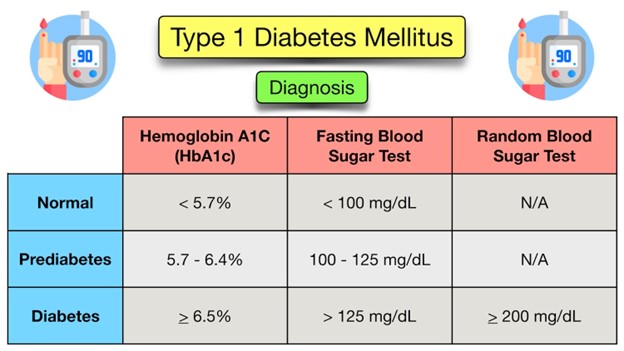Living with Type 1 Diabetes can be challenging for anyone, but it can be particularly daunting for children. The need for constant monitoring, insulin injections, and dietary restrictions can impact their daily lives. However, with the right support and guidance, children with Type 1 Diabetes can lead healthy, fulfilling lives. Let’s explore latest insights on
Living with Type 1 Diabetes can be challenging for anyone, but it can be particularly daunting for children. The need for constant monitoring, insulin injections, and dietary restrictions can impact their daily lives. However, with the right support and guidance, children with Type 1 Diabetes can lead healthy, fulfilling lives. Let’s explore latest insights on empowering children with Type 1 Diabetes and helping them navigate the complexities of their condition.
1. Understanding Type 1 Diabetes in Children:
Type 1 Diabetes is a chronic condition in which the pancreas produces little to no insulin, resulting in high blood sugar levels. When diagnosed in children, it requires careful management to ensure optimal health and well-being. Educating children and their families about the basics of Type 1 Diabetes is crucial in empowering them to cope with the challenges it presents.
2. Monitoring Blood Sugar Levels:
One of the key aspects of managing Type 1 Diabetes in children is monitoring their blood sugar levels regularly. This involves using a glucose meter to measure blood sugar levels and keeping track of fluctuations throughout the day. By maintaining tight control over blood sugar levels, children can reduce the risk of complications and maintain good health.
3. Balancing Insulin Injections and Meals:
Children with Type 1 Diabetes must carefully balance their insulin injections with their meals and physical activity. Insulin helps regulate blood sugar levels, and children need to take their insulin doses as prescribed by their healthcare provider. Additionally, they must pay attention to their dietary choices to ensure they are consuming a balanced diet that supports stable blood sugar levels.
4. Educating Children and Caregivers:

Image by: Bing.com
Empowering children with Type 1 Diabetes begins with education. Children should be taught about their condition, the importance of regular monitoring, the effects of different foods on blood sugar levels, and how to recognize and respond to hypoglycemia (low blood sugar) or hyperglycemia (high blood sugar). Caregivers also play a vital role in supporting children with Type 1 Diabetes and ensuring they have the tools they need to manage their condition effectively.
5. Managing Emotional Well-Being:
Living with Type 1 Diabetes can take a toll on children’s emotional well-being. The constant monitoring, treatment regimen, and potential complications can lead to feelings of stress, anxiety, and frustration. It is essential to provide children with emotional support, encourage open communication about their feelings, and help them develop coping strategies to navigate the emotional challenges associated with their condition.
6. Promoting Physical Activity:
Regular physical activity is important for children with Type 1 Diabetes as it helps regulate blood sugar levels, improve insulin sensitivity, and promote overall health. Encouraging children to engage in age-appropriate physical activities they enjoy not only supports their physical well-being but also instills healthy habits that can benefit them in the long run.
7. Leveraging Technology for Management:
Advancements in technology have revolutionized the management of Type 1 Diabetes, offering innovative tools such as continuous glucose monitors and insulin pumps. These devices can help children with Type 1 Diabetes monitor their blood sugar levels more effectively, adjust their insulin doses with greater precision, and simplify the management of their condition.
8. Building a Support System:
Creating a strong support system for children with Type 1 Diabetes is crucial in empowering them to navigate the challenges they face. This support system may include healthcare providers, school personnel, family members, and peers who understand the needs of children with Type 1 Diabetes and can offer assistance, encouragement, and understanding when needed.
9. Encouraging Independence and Self-Care Skills:
As children with Type 1 Diabetes grow older, fostering their independence and self-care skills becomes increasingly important. Teaching them how to monitor their blood sugar levels, administer insulin, make informed food choices, and manage their condition independently equips them with the confidence and skills they need to take control of their health.
10. Celebrating Achievements and Resilience:

Image by: Bing.com
Empowering children with Type 1 Diabetes is about recognizing and celebrating their achievements and resilience in managing their condition. By acknowledging their efforts, providing encouragement, and fostering a positive mindset, children with Type 1 Diabetes can thrive and overcome the challenges they face, inspiring them to lead fulfilling and healthy lives.
Conclusion:
Empowering children with Type 1 Diabetes involves a multi-faceted approach that combines education, support, technology, and a positive mindset. By equipping children with the knowledge, skills, and resources they need to manage their condition effectively, we can help them navigate the complexities of Type 1 Diabetes with confidence and resilience, enabling them to live their lives to the fullest.
















